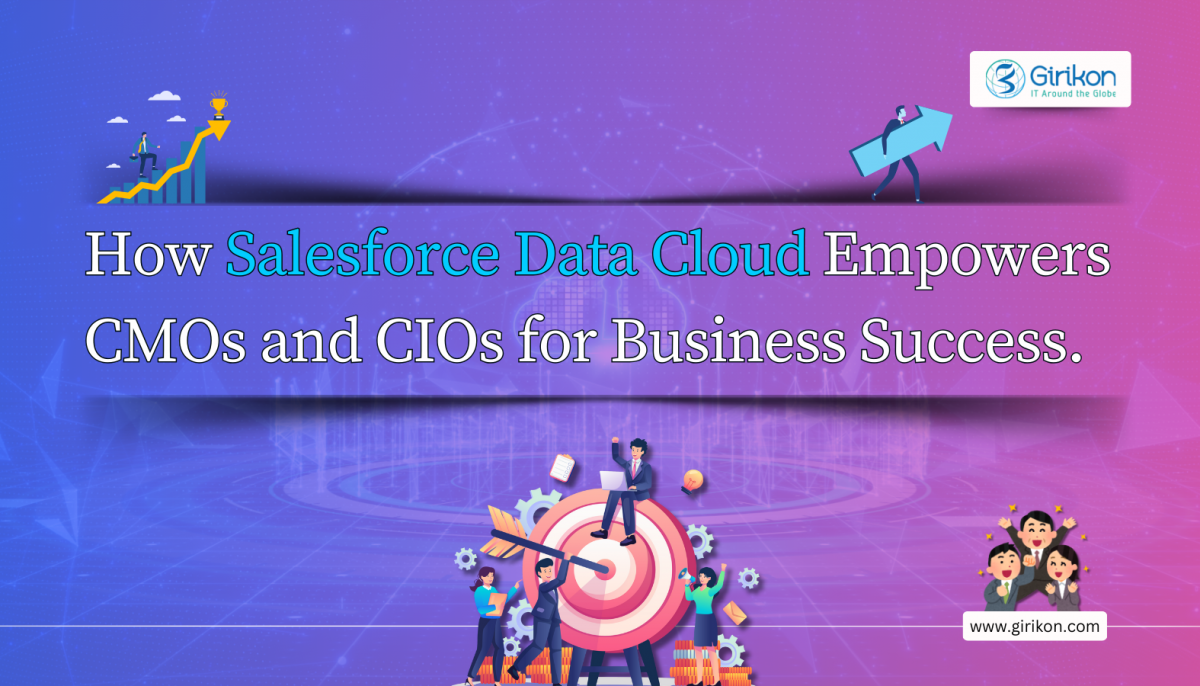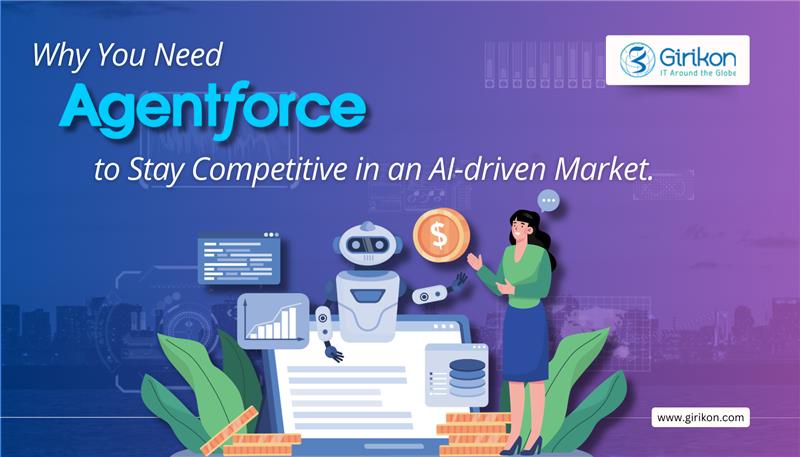Our Blogs
In today’s business landscape, a successful enterprise must adopt a system that seamlessly integrates all departments and their respective business processes to enable them to interact and collaborate effortlessly. This is where Salesforce has established itself as the market leader in the CRM space.
Salesforce CRM sometimes popularly referred to as the Customer 360 platform, is a user-friendly solution with virtually limitless flexibility that connects teams across departments in an organization and drives growth. As a result, companies that use Salesforce see improvements in growth and efficiency.

But to get the most out of what Salesforce CRM has to you need professional expertise.
While most of the Salesforce products are centred around sales and customer service, Salesforce can be used for almost anything. And while the key Salesforce functions haven’t changed much – consultant, administrator, architect and developer, the specializations required based on the unique business needs of an organization have become quite apparent. One needs to have specialization on some of the key aspects of Salesforce to make the implementation count.
Consultants don’t just bring in the necessary skills and experience for implementing the CRM platform. They also add significant value in being able to understand the customer. Not only in terms of business processes within the organization but also outside of that realm, such as the people who drive those processes. And they are an intrinsic part of the customer’s growth journey onwards of implementation.
While businesses can provide the Salesforce implementation team with data and insight, certain things can only be understood by a specialist. This is where the Salesforce consultant role becomes important. They are trained with skills like attention to detail, analytical thinking and problem-solving along with hands on expertise on the platform.
Why Is Salesforce so Popular?
- Salesforce upgrades its product offering three times a year. Which means every year they add new features and functionality to help existing and new business innovate rapidly.
- Salesforce is founded on a Customer-360 vision and promotes a collaborative work culture that brings people together and promotes productivity.
- The Salesforce online community provides help and support to the entire developer community to solve any business challenge
- The Salesforce platform has virtually limitless flexibility and businesses can create any number and kind of custom apps and integrations to support their business
- Salesforce allows you to automate routine business processes which frees up employee time to focus on core tasks.
- Salesforce is powered by an advanced AI engine which delivers qualified analytics on Key Performance Indicators (KPIs) of your business.
Here's where Salesforce Consultants add value across various phases
As Part of an Implementation Team
CRM implementation is a time-consuming effort and requires coordinated team effort. It would be a wise decision for a business to hire a specialist with extensive experience in Salesforce implementation since the Salesforce platform is complex and offers virtually limitless customization possibilities.
Consequently, Salesforce consultants are in high demand across businesses that need the Salesforce CRM implementation. Here are the phases that require the services of a Salesforce Consultant:
The Pre-Implementation Phase
Before preparing a draft of the Salesforce implementation plan, a Salesforce consultant needs valuable insight from within the company. Information on the type and number of employees, the working structure of the company, regular business processes and workflows, are all important to understand how the organization works and what are its vital parts. The consultant needs to work closely with the business leaders within the organization to understand goals and expectations and current challenges and workflow bottlenecks
During the Implementation
Consultants play a vital role during the implementation phase as well. They are the link between the technical team – architects, administrators and developers who install and configure the platform and build and deploy custom apps, and the company. Their role is to maintain good communication between the two groups and ensure everything is well captured.
After the Implementation
The implementation is not over until the customer starts seeing results. After all, the technical implementation is just side of it. Once the technical tasks are completed, the implementation team also needs to train the users on the platform. Typically, this is another key responsibility area of a Salesforce consultant. It requires good communication skills, teamwork and leadership skills.
Businesses are evolving continuously. And the software that they use needs to keep pace with it. Businesses need to add and upgrade their apps and workflows on an ongoing basis to stay ahead of the curve. If you are already using Salesforce in your organization, the presence of a Salesforce Consultant will help you to upgrade rapidly by building and deploying apps in an agile framework. And do to that you need a strong team of specialists.
Moreover, just like every other complex platform, Salesforce also requires maintenance time to time. This is another key responsibility area of a consultant.
As part of the organization
Salesforce consultants also work in organizations that don’t do implementation for others. They just have enough in house needs. These are regular businesses that use the Salesforce platform and a small team of consultants to oversee the implementation, upgrades and maintenance activities.
In this context, a Salesforce Consultant’s function is to make sure system performs perfectly and the users are able to use it easily. On top of that, they also discover methods to further enhance the customer experience through the use of the platform and make sure teams continue to communicate with each other.
Shortage of Salesforce Professionals
Currently, there just aren’t enough people trained in Salesforce to meet growing demands of this ecosystem. One of the key reasons is that Salesforce isn’t your run-of-the-mill software. It’s a specialised and complex product and unless you're a service provider or you are a part of an organization that uses Salesforce, it’s unlikely that you know much about it.
Many of the Fortune 100 companies use Salesforce. IDC published an article in October 2017 saying that over 3 million jobs are expected to be there in the Salesforce ecosystem by end of 2022 through its network of partners. Salesforce has been growing at a brisk pace year on year, and so are their customers, consequently driving up the demand for Salesforce professionals to support that growth. And the skills one acquires as a Salesforce professional are highly transferable in case one wants to switch over to another industry.
Developing Salesforce Skills
Irrespective of your available budget, there are multiple options available to help one get familiar with Salesforce and develop skills in a certain are:
Developer organisations— Sign up immediately for a free developer licence and start practising
Trailhead, which is a Salesforce powered only community where one can get hands-on exposure to Salesforce and learn the technical and business skills one needs to succeed from anywhere for free.
Girikon is a dedicated Gold Certified Salesforce Partner. Our relentless focus on understanding the unique needs of our customers combined with our rich expertise and experience on the Salesforce platform allows us to deliver value driven solutions to our clients. Contact us today to know more.

 +1-480-382-1320
+1-480-382-1320 +44-7428758945
+44-7428758945 +61-1300-332-888
+61-1300-332-888 +91 9811400594
+91 9811400594


















